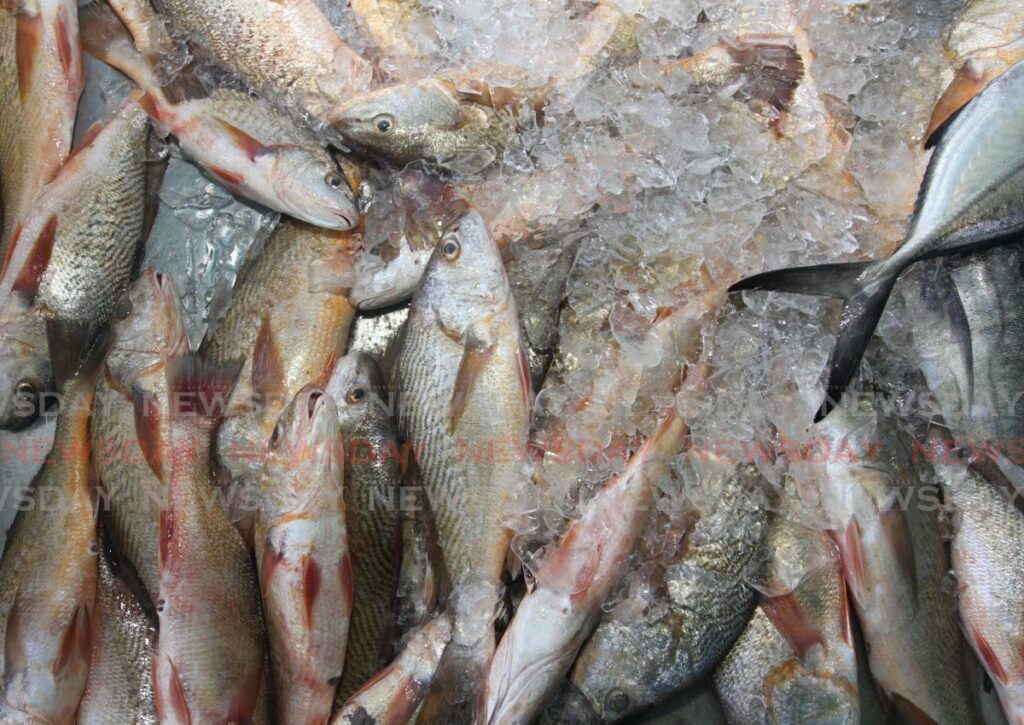Trinidad and Tobago fish exports banned from European Union

Fish from TT can no longer be exported to the European Union (EU) after the European Commission branded TT a “non-co-operating country” in the fight against illegal, unreported and unregulated (IUU) fishing.
The EU’s IUU Regulation requires countries to certify that fish caught by their vessels and exported to the EU do not stem from illegal fishing activities.
A press release from the commission on Tuesday said the decision was based on TT’s failure to address “serious shortcomings” after being issued a yellow-card warning in April 2016.
EU commissioner for environment, oceans and fisheries Virginijus Sinkevičius said, “The commission is strongly committed to sustainable fisheries and efficient ocean governance. We have zero tolerance for IUU fishing and today the commission has taken firm action by giving TT a red card.”
He said the ban does not mean the end of talks adding, “We remain ready to continue our dialogue with TT to address the threats that IUU fishing poses to the sustainability of fish stocks, coastal communities, food security and the livelihoods of fishers who abide by the rules.”
The EU release said despite its support for the revision of the legal framework and in monitoring, control and surveillance, TT did not make sufficient progress to satisfy the requirements under the IUU legislation.
It said TT has not adopted an adequate fisheries legal framework regulating and controlling the activities of national fishing vessels, fishing activities taking place in waters under national jurisdiction, and the activities of foreign fishing vessels calling at ports in the country.
The EU explained that the legislation “does not empower the fisheries authorities to conduct fisheries inspections and cannot ensure compliance with applicable regional conservation and management measures. The situation compromises an effective control and traceability of the fisheries products caught, landed or shipped there, leaving the doors open for the entry into the market of fisheries products potentially stemming from IUU fishing.”
The bloc warned until the situation is addressed, importation of fishery products from TT will be refused, even when accompanied by catch certificates validated by TT authorities.
The Ministry of Agriculture, Land and Fisheries said, “The current fisheries legislation is more than 100 years old and does not allow Trinidad and Tobago to adequately address its international obligations.”
It added, “In an attempt to fast-track the passage of new modern legislation, a Joint Select Committee of Parliament was convened in 2020 to review the bill, completing two rounds of review of all 242 clauses. Due to the substantive changes...the amended bill is now before the legislation review committee of the Cabinet for consideration.”
The ministry said the Committee will meet twice to address any final legal considerations before the bill goes to Cabinet for approval.
It added, “Consultations with stakeholders will follow to advise on how their comments were addressed in the bill after which the bill will be laid in Parliament.”
Fishermen and Friends of the Sea corporate secretary Gary Aboud described the news as “a real embarrassing day for TT.”
He told Newsday the situation could have been avoided.
“This is just a typical example of gross incompetence. Do you know it’s seven years since we’ve been yellow-carded? It’s not like the European (authorities) just came yesterday and threw this on us.”
Aboud said the Government’s failure to act swiftly has affected thousands of people.
“This is 50,000 people who work on the sea who need to keep their fishery going. The Government has disappointed us in the worst way, and now TT is the laughing stock of the world.”
Aboud said the government must carefully consider the possible repercussions of any legislation developed to address the situation.
“You going to pass a legislation that could have us arrested for the slightest violation. We can be thrown behind bars and locked out from fishing. You could…ban us from the right to fish, take away our licence to be on the sea.”
Calling for transparency he said, “The government is saying they will pass the legislation and after they pass it they will consult us. (But) they have to give it to us so we can study it and we have to be included in some sort of rational discussion.”
He added any previous consultations the government had held were now invalid.
“The consultations they had with us was five years ago. They have made serious changes to (the legislation) and we have to know what those changes are. If (fisherfolk) are not a part of the legislation, then the legislation will fail.”
“All we are asking for is to be a part of it.”
Saying it is the world’s largest import market for fisheries products, the EU said it bears the responsibility to ensure that it does not import products stemming from illegal or unregulated fishing activities.
The EU cited fishing without a valid licence, fishing in a closed area or during a closed season, and using prohibited gear as examples of IUU violations.
It said any other actions in contravention of the conservation and management measures also constituted a violation of IUU regulations.
It said combating illegal and unregulated fishing is part of its actions under the 2030 Agenda for Sustainable Development to conserve and sustainably use the oceans, sea and marine resources.
The regional bloc described IUU fishing as one of the most serious threats to the sustainable exploitation of living aquatic resources and a major hazard to the marine environment, the sustainability of fish stocks and marine biodiversity.
The zero-tolerance approach to the issue is an integral part of the European Green Deal and the EU Biodiversity Strategy.
The EU said up to 26 million tonnes of fish are caught illegally every year, with a global value of between €10 and €20 billion (US$10, 570-21.1 billion).

Comments
"Trinidad and Tobago fish exports banned from European Union"